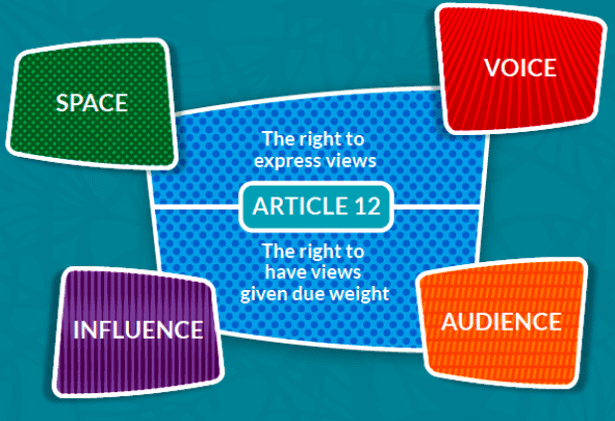Mental health is a universal human right
Collaborating with young people, parents and carers in mental health research is key to its success.
On 10th October, Anna Freud joins others around the globe to celebrate World Mental Health Day, raising awareness and advocating for support for mental health. The theme this year is “mental health is a universal human right”.
In 2020, a United Nations General Assembly rapporteur emphasised that even though we have seen positive steps towards promoting mental wellbeing and responding to mental ill-health, there is still a long way to go. The report encourages continued discussion and response to mental health in a way which is rights-based and “rooted in the lived experiences” of those who are struggling, or have struggled, with their mental health.
At Anna Freud, the focus of our work is children and young people, including their right to mental health and wellbeing. We want to see a world where all children and young people can achieve their full potential. A world in which they and their families get support that is designed with their input, available at the right time, and meets their needs. We know the only way to do this is in collaboration with children and young people, and their parents and carers.
This is why Anna Freud has adopted the Lundy model of participation to underpin our work and mission, a model rooted in Article 12 of the United Nations Convention on the Rights of the Child (UNCRC). Article 12 states that young people have a right to express their views on matters that affect them, and for these views to be taken into consideration. As such, young people must be given a say in how we research, support, and respond to their mental health. The Lundy model highlights four domains of participation: space, voice, audience, and influence. Children and young people need to have the opportunity to express their views (space), be facilitated to do this (voice), be listened to (audience), and know that their views will be acted upon (influence).

[You can read a previous blog here from our previous Participation Officer when attending a talk by Professor Lundy]
In our Applied Research and Evaluation division (which CORC are a part of) we use this model to inform the way that young people, parents and carers are involved in research studies. Our aim is not just for them to take part in research; we believe they have a right to be involved in developing it from beginning to end, in a way that matters to them. This looks different for everyone and can involve joining research teams as a peer researcher, advising on the design of materials, co-facilitating activities, analysing results, and sharing and advocating findings.
For example, in our Wellcome Trust funded ‘Active Ingredients’ project, young people from eight countries worked with career researchers to explore views on a list of “best bets” for preventing and supporting young people experiencing anxiety and depression. Young people with lived experience of anxiety or depression advised on the activities and outputs of the whole project, to ensure they matched young people’s understanding, views and needs. Two peer researchers also joined the research team, co-designing materials, co-facilitating focus groups, and contributing to the analysis and write up of findings, including this publication about their experiences of the project.
We are excited to continue to uphold the rights of young people by collaborating and co-producing our research with them, and for them. Mental health is a universal human right; therefore, everyone must also be given the opportunity to influence what mental health support and research looks like.
Rachael Stemp, Participation in Research Officer